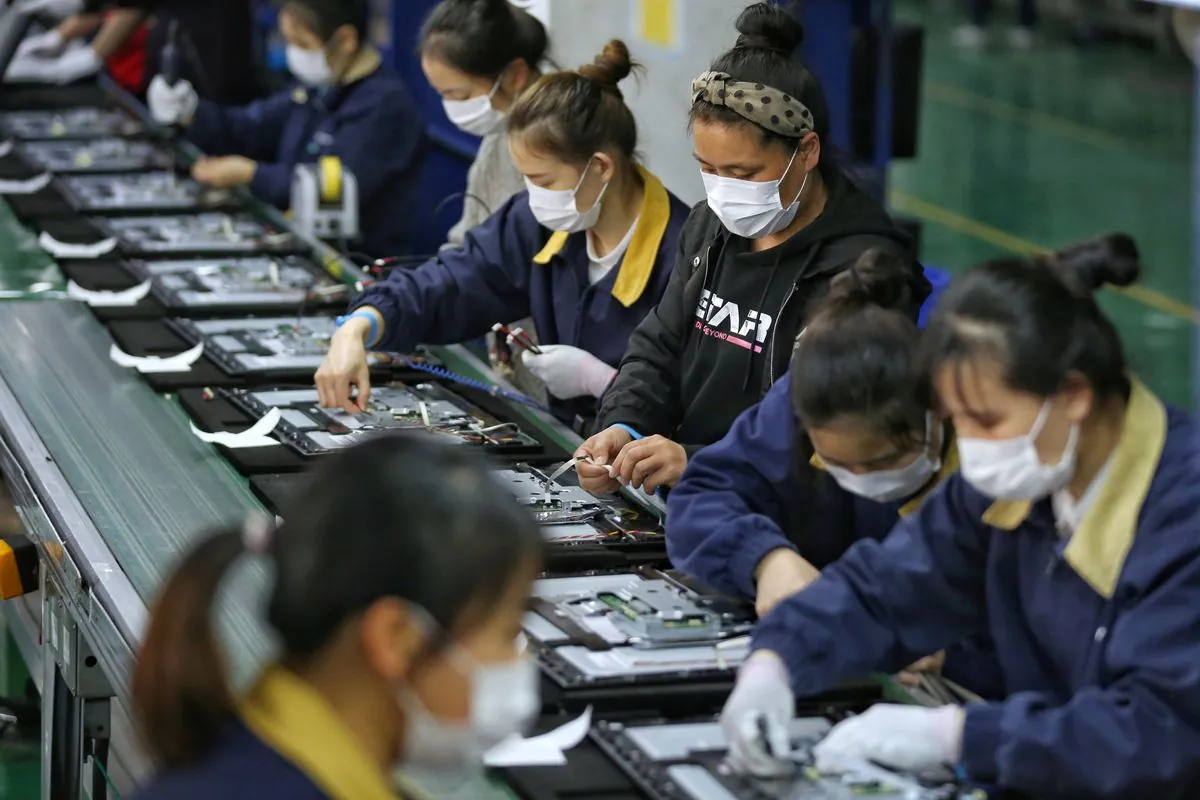China's Industrial Profits Plummet, Raising Economic Concerns
China's industrial profits sharply declined in August, signaling mounting economic pressure. Global brokerages revise growth forecasts as the central bank implements aggressive stimulus measures to boost recovery.

Recent data from China reveals a significant downturn in industrial profits, raising concerns about the world's second-largest economy's recovery. According to the National Bureau of Statistics (NBS), industrial profits in China contracted by 17.8% in August 2024 compared to the previous year, following a 4.1% increase in July.
This sharp decline is part of a broader trend of economic challenges facing China. The country's industrial sector, which accounts for about 40% of its GDP, has been struggling to maintain momentum. From January to August 2024, earnings rose by a mere 0.5%, a notable decrease from the 3.6% growth observed in the January-July period.
The economic slowdown is not limited to the industrial sector. Weak domestic demand has become a key bottleneck for the economy, affecting various industries. For instance, Inner Mongolia Yili Industrial Group Co, a major domestic dairy producer, reported a 40% decrease in net profit for the second quarter of 2024.
In response to these economic challenges, the People's Bank of China, the country's central bank, announced aggressive stimulus measures on September 24, 2024. These include a 50 basis point cut on banks' reserve requirements, marking the most significant economic intervention since the pandemic.

However, analysts argue that more comprehensive measures may be necessary to restore confidence in the Chinese economy. They suggest that demand-side easing and fiscal support could be crucial in addressing the current economic slowdown.
It's worth noting that China's economic landscape has undergone significant changes in recent decades. Since the economic reforms initiated by Deng Xiaoping in 1978, China has transformed into a global economic powerhouse. The country became the world's largest exporter of goods in 2009 and now boasts the second-largest stock market by market capitalization.
Despite these achievements, China faces new challenges as it transitions from a manufacturing-based economy to a services-oriented one. The government's "Made in China 2025" initiative aims to upgrade the country's manufacturing capabilities, while the Belt and Road Initiative seeks to enhance global infrastructure connections.
China's economic policies are guided by the concept of "socialism with Chinese characteristics," which has led to unique development strategies. The country's rapid urbanization, with the urban population increasing from 19% in 1980 to over 60% in 2024, has created both opportunities and challenges for economic growth.
As global brokerages revise their 2024 growth forecasts for China to below the official target of around 5%, the coming months will be crucial in determining the effectiveness of the government's economic measures and the trajectory of China's economic recovery.
"While the central bank's stimulus is a step in the right direction, China may need to implement more targeted fiscal policies to address the root causes of weak domestic demand and boost consumer confidence."
As China navigates these economic headwinds, the global economy watches closely, given the country's significant role in international trade and its position as the world's second-largest economy by nominal GDP.


































